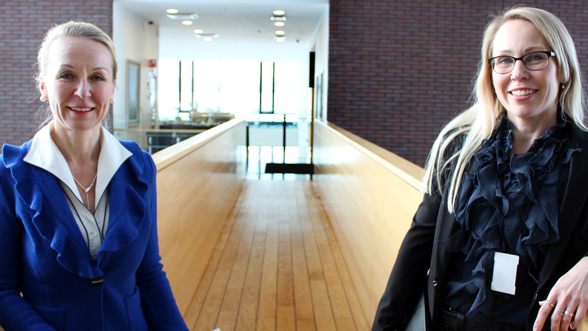The Access to Medicine Foundation guides pharmaceutical companies to do more for the people living in low- and middle-income countries without access to medicine.
The index initiated by the foundation ranks all pharmaceutical companies in the world according to how well they promote access to medicine.
By current estimates, two billion people do not have access to the medicine they need.
– Product development has focussed on the treatment of Western diseases, such as cancer. Developing countries, however, are ravaged by other diseases, such as malaria and HIV, and the index encourages pharmaceutical companies to find cures for those diseases, too, explains Varma’s portfolio manager, Kaisa Ojainmaa.
The pharmaceutical industry has far-reaching impacts, as well as the opportunity to solve fundamental problems.
The Access to Medicine index provides portfolio managers with useful information to support investment decisions, as well as tools to influence.
– It makes financial sense for investors to be well-informed on these matters, as ESG issues affect companies’ value in the long term, Ojainmaa points out.
ESG analysis focusses on the sustainability of the investee
An ESG analysis means that, in addition to return expectations, the investor also takes into account factors related to the environmental, social and governance issues. A much-discussed topic in recent years has been especially the ‘E’ in ESG, as investors’ attention has turned to mitigating climate change.
The ‘S’ in ESG refers to the social dimension. It includes serious and fundamental issues, such as human rights, humane working conditions and the living wage. Investors are also interested in matters such as food safety and the responsibility and transparency of supply chains.
– Social themes vary considerably across industries, and different sectors focus on the characteristics typical to them. When meeting with companies, we ask them questions about responsibility pertaining to their industry, says Hanna Kaskela, Director of Responsible Investment at Varma.
From blacklisting to positive impacts
When it comes to human rights, Finnish law sets the bar high, but in other countries, the situation is often not quite as ideal. Varma’s global investment portfolio is continuously screened for different types of violations. The investor will be notified if a company is suspected of a responsibility breach.
What is the most responsible way to react, e.g., if there are problems with how an investee company treats its employees?
– The most important thing is for the investors to try to engage with the company so that it changes its conduct. Exclusion is always the last resort, says Kaskela.
Relatively few violations are detected annually even in large investment portfolios. Nevertheless, the public debate on responsible investment easily turns to blacklists and negative screening.
Kaskela therefore encourages companies to focus on a positive approach in meeting their social obligations.
Access to Medicine
Access to Medicine is an independent, non-profit organisation founded by Melinda and Bill Gates whose purpose is to guide pharmaceutical companies to do more to give people in low-income countries better access to medicine.
A total of 64 investors have already pledged their support to the independent research by signing the Access to Medicine Index Investor Statement. Together, these investors manage assets in excess of USD 5.5 trillion.
